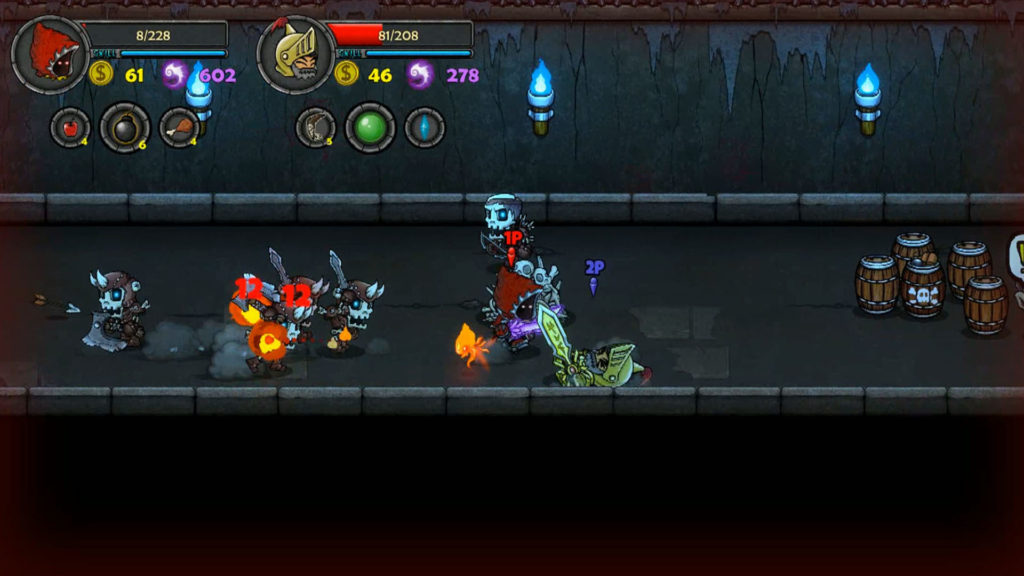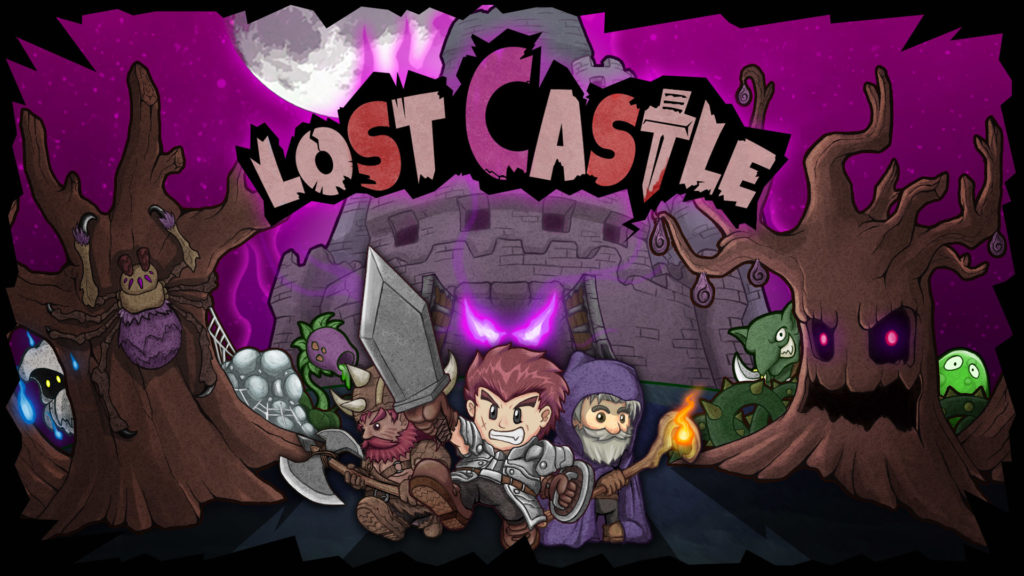It’s hard to believe that Steam, perhaps the largest PC gaming platform in the world, only launched in China (with one of the biggest PC gaming audiences in the world) late last year. But since then, its users in the country skyrocketed, and it continues to grow steadily. Additionally, the platform opens a world of opportunities for Western game publishers that are looking to reach that audience.
One publisher that has benefitted greatly from Steam’s presence in China is the publisher Another Indie Studio, which launched the roguelike game Lost Castle on Steam Early Access in February. After only six months, the game (which is priced at $7.99 US) sold over 130,000 copies, which is quite a feat in a country that prefers free-to-play games with microtransactions.
In Lost Castle, players take the role of nameless Treasure Hunters as they battle their way through the demon-infested dungeons of Castle Harwood in search of loot.

Iain Garner, global developer relations and marketing director at Another Indie Studio, spoke with [a]listdaily and describes the game as a roguelike that features permadeath. Every time the player dies, it’s the end of that Treasure Hunter’s adventure.” However, “dead heroes’ souls can be sacrificed to upgrade the subsequent Treasure Hunters that the player controls. Castle Harwood will consume the souls of many heroes before players uncover its secrets.”
Even with Steam, it can be difficult for games to stand out, especially when they’re independent games that are still in Early Access. When asked about how the publisher got the word out about Lost Castle in China, Garner replied, “Lost Castle was a hit with streamers in China who both loved the game and wanted to support the local indie games industry. Most Chinese PC games are very casual and free-to-play driven, making Lost Castle stand out from the crowd, given its roguelike elements and premium pricing.
“We saw an unexpected surge in sales and interest that resulted in mainstream media coverage. Lost Castle rapidly became one of the most popular games in China, reaching 130,000 sales despite still being in Early Access on Steam.”
Garner also discussed how Lost Castle managed to sell so many copies in a market that prefers free-to-play games.
“Recently, Steam opened up their digital storefront to accepting Chinese Yen, and this had a massive impact in China,” Garner explained. “Previously, only gamers with access to foreign cards or key-resellers were able to purchase games on Steam. After Chinese currency and payment methods were allowed to be used, there has been a boom in Steam sales in China and the country has been the third highest spender on Steam for the last few months, according to SteamSpy.
“Steam is growing at an amazing rate in China, and there are numerous communities springing up around it. SteamCN.com is one site that we’ve spent a lot of time and energy interacting within to foster a community. Our employees are active members of several online gaming communities, which has enabled us to chart and follow the developing tastes of China’s gamers.”
When asked about how Chinese tastes in games compared to Western ones, Garner said that “Chinese tastes are very varied. The majority of gamers here use mobile phones, but there’s a committed contingent of hardcore gamers who enjoy playing roguelikes and are interested in Lost Castle. It’s their conversion to buying the game on Steam that has made the greatest impact.
“Chinese gamers tend to have a higher tolerance for repetition after many years of mobile gaming, and are much more accepting of gameplay bugs, understanding that they will be fixed—as Lost Castle is in Early Access. Western gamers tend to crave variety and are more easily bored. Balancing this difference in tastes has been one of the hardest challenges in developing Lost Castle.”
In addition to cultural differences, Garner said that the biggest challenge Another Indie Studio faced in promoting Lost Castle for both Chinese and Western audiences was language translation. “All promotional content needs multiple versions and multiple perspectives to accurately reach audiences around the world. This can create real problems with creating trailers and other assets from a development perspective.”
Additionally, “in China, media coverage is predominantly paid. We were very lucky at first because we were able to garner organic streamer interest, but now that our brand is more developed, we need to pay for articles most of the time. This gives us some control over what is said and when, but the end result is that gamers are much less trusting of media than Westerners.” The publisher has also been working hard in the West to gain attention on social media via advertisements, YouTube, Facebook and Twitter—with notable success using Instagram to reach fans and find new players.

Given how different the Chinese PC gaming market is compared to the West, we asked Garner what was the most important thing to keep in mind when reaching out to players in China.
“The most important thing is to make an effort with Chinese gamers,” Garner replied. “The Chinese as a whole are pretty accustomed to foreign companies not making significant efforts to sell products. If you don’t speak Chinese or have knowledgeable Chinese partners, then you will always have problems dealing with the Chinese market and Chinese gamers as a result of not understanding the culture.”

